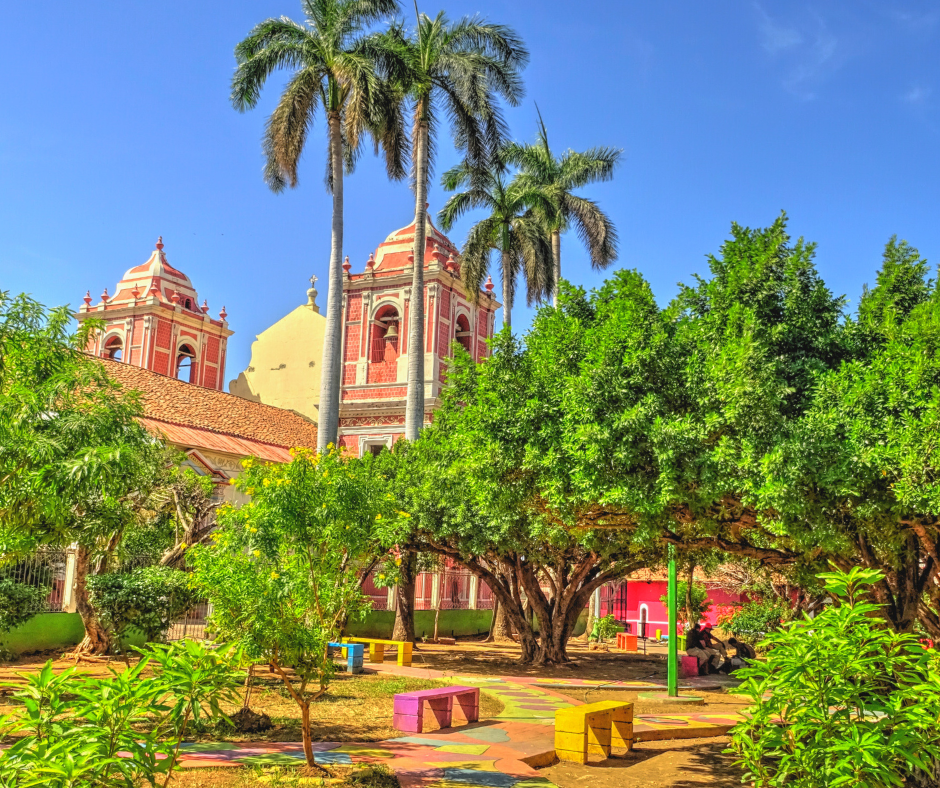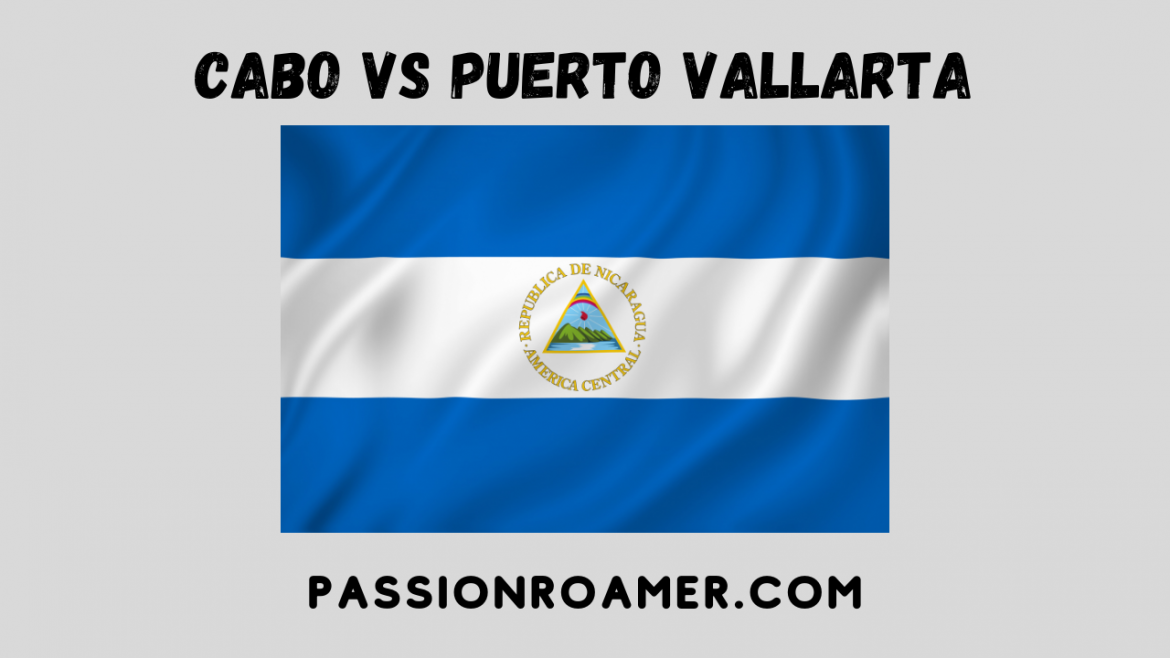Nicaraguan family life is rich and diverse, with strong cultural traditions and a deep sense of community at its core. Located in Central America, Nicaragua has a complex history, but its family values have remained strong throughout the centuries. In this article, we will explore the different aspects of Nicaraguan family life, including family structure, customs, and values. From the importance of extended families to the role of religion, we will delve into the unique characteristics that make Nicaraguan families so special. By understanding the dynamics of Nicaraguan family life, we can gain a deeper appreciation for the country’s rich culture and the values that are important to its people.
Table of Contents

Does Extended Family Live in a Househouse in a Typical Nicaraguan Family?
In a typical Nicaraguan family, the household may consist of multiple generations living under the same roof. The home could include grandparents, parents, and children all living together in one house. It is common for extended family members, such as aunts, uncles, or cousins, to also live in the same household.
Additionally, Nicaraguan families often prioritize the care of elderly family members, so it is not unusual for older relatives to live with their adult children and their families. In some cases, younger family members may also live with their grandparents, mainly if their parents have migrated to another country for work.
Overall, Nicaraguan families strongly emphasize communal living, with multiple generations and extended family members often sharing a home. Communal living helps to reinforce the importance of family and social connections in Nicaraguan culture.
Traditional Hispanic Kinship Patterns
Hispanic kinship patterns are known for their strong emphasis on family and community, with extended families often playing a central role in social and cultural life. Traditional Hispanic kinship patterns are based on a complex system of relationships and obligations that define one’s place in the family and community.
In Hispanic cultures, the family is typically large and multi-generational, with grandparents, parents, and children often living under the same roof or near one another. This extended family structure is essential for providing emotional and financial support, particularly in times of need.
The roles and expectations within the family are also clearly defined based on age and gender. Elders are respected and revered, with the patriarch or matriarch often holding significant authority and decision-making power. Younger family members are expected to show deference and obedience to their elders while also fulfilling their duties and obligations.
Hispanic kinship patterns also prioritize community and social relationships. Family ties extend beyond blood relations, and close friends and neighbors are often considered part of the family. The concept of “compadrazgo,” or godparenthood, is fundamental in Hispanic cultures, with godparents often serving as additional sources of guidance and support for children.
A strong sense of family and community characterizes traditional Hispanic kinship patterns. Clear expectations and roles are defined based on age, gender, and social relationships.
Nicaraguan Families Compared to Other Countries in Latin America
Nicaraguan families share many similarities with families in other Latin American countries, such as a strong emphasis on family and community, multi-generational households, and clearly defined gender roles. However, some distinct characteristics set Nicaraguan families apart from those in other countries in the region.
One of the key differences is the importance of religion. Nicaragua is predominantly Catholic, and religious practices and beliefs play a significant role in daily life and family dynamics. For example, Nicaraguan families often celebrate religious holidays and attend church together as a family, which helps to reinforce their sense of community and shared values.
Another distinguishing feature of Nicaraguan families is the influence of indigenous cultures, particularly in rural areas. Nicaragua Indigenous communities have different cultural practices and beliefs, which often differ from those of mainstream Hispanic culture. This is clear in food, clothing, and spiritual practices, often deeply rooted in the local indigenous traditions.
Additionally, Nicaraguan families have been impacted by the country’s political conflict and economic instability history. This has led to a high emigration rate, particularly to the United States, which has resulted in families being separated across borders. This has created unique challenges for Nicaraguan families, such as maintaining long-distance relationships and supporting family members who have migrated for economic reasons.
While Nicaraguan families share many similarities with families in other Latin American countries, their unique blend of indigenous, Catholic, and political influences has contributed to a distinct family culture and set of challenges.
Family Traditions in Nicaragua
Nicaraguan families strongly emphasize traditions and customs, which are often passed down from generation to generation. Here are some of the most common family traditions in Nicaragua:
Celebrating Patron Saint Festivals: Many Nicaraguan families commemorate the patron saint festivals of their local church. These festivals often involve parades, music, food, and religious ceremonies. They are an opportunity for families to come together and celebrate their faith and community.
La Purisima: La Purisima is a religious festival celebrated throughout Nicaragua in December. It involves visiting different homes to sing hymns and pray to the Virgin Mary. It is a way for families to come together and celebrate their faith.
Christmas Traditions: Christmas is a significant holiday in Nicaragua, and many families have unique traditions. Some standard practices include setting up nativity scenes, attending Midnight Mass on Christmas Eve, and preparing special foods like nacatamales (tamales).
Family Dinners: Family dinners are an essential part of Nicaraguan culture and are often an opportunity for extended family members to come together and share a meal. Nicaraguan cuisine often features rice, beans, and plantains and is accompanied by fresh fruits and vegetables.
Semana Santa: Semana Santa, or Holy Week, is a religious holiday celebrated throughout Latin America. In Nicaragua, it involves attending church services, participating in processions, and preparing traditional foods like seafood soup and torrejas (a type of sweet fritter).
Quinceañera: The quinceañera is a coming-of-age tradition celebrated throughout Latin America. It involves a celebration of a young girl’s 15th birthday, which often includes a religious ceremony, a formal dance, and a party with family and friends.
Overall, Nicaraguan families strongly emphasize traditions and customs, which often reflect their faith, community, and cultural heritage. These traditions help to reinforce the importance of family and social connections in Nicaraguan culture.
Common Nicaraguan Last Names
Nicaraguan last names often reflect the country’s history, with influences from Spanish colonialism and indigenous cultures. Here are some of the most common Nicaraguan last names:
Garcia – This Spanish surname is prevalent throughout Latin America. It is believed to have originated from the Basque region of Spain.
Lopez – Another common Spanish surname, Lopez, means “son of Lope.” Lope is an old Spanish name that means “wolf.”
Martinez – This Spanish surname means “son of Martin.” Martin is a name of Latin origin that means “warrior” or “military.”
Hernandez – This Spanish surname means “son of Hernando.” Hernando is a variant of Ferdinand, which means “adventurous.”
González – This is a Spanish surname that means “son of Gonzalo.” Gonzalo is a name of Gothic origin that means “battle” or “war.”
Chamorro – This is a surname that is unique to Nicaragua. It is believed to have originated from the indigenous Chorotega people, who lived in what is now Nicaragua before the arrival of the Spanish.
Blandón – This is another surname that is unique to Nicaragua. It is believed to have originated from the indigenous Miskito people, who still live in the country today.
Flores – This is a Spanish surname that means “flowers.” It is a common surname in many Latin American countries, including Nicaragua.
Castellón – This Spanish surname means “castle” or “fortress.” It is believed to have originated from the Castile region of Spain.
Aguilar – This Spanish surname means “eagle’s nest.” It is believed to have originated from the Aguilar family, who were prominent in medieval Spain.
What is the Nicaraguan People’s Way of Life?
The Nicaraguan people’s way of life is shaped by their unique cultural heritage, history, and geography. Here are some of the critical elements that define the Nicaraguan people’s way of life:
Strong community ties: Nicaraguans have a strong sense of community and value their relationships with family, friends, and neighbors. Extended families often live together or nearby. Social events like festivals and religious celebrations are essential opportunities for people to come together and celebrate.
Connection to nature: Nicaragua’s geography is characterized by its mountains, lakes, and volcanoes, and the natural world plays a vital role in people’s way of life. Many Nicaraguans work in agriculture or fishing, strongly emphasizing environmental conservation and sustainability.
Catholic faith: Most Nicaraguans are Catholic, and the Catholic faith plays a vital role in daily life. Religious practices and celebrations are an essential part of people’s way of life, and the church often serves as a center of community activity.
Love of music and dance: Nicaraguans have a deep love for music and dance, and both are essential elements of their cultural heritage. Traditional Nicaraguan music often features marimbas, guitars, and percussion instruments and is often accompanied by dancing.
Political activism: Nicaragua has a complex political history, and political activism is a part of many Nicaraguan’s ways of life. Protests and demonstrations are common, and people often engage in discussions and debates about political and social issues.
Family-oriented values: Nicaraguans strongly emphasize family and children, and there is a strong sense of responsibility to care for one’s elderly family members. Children are often raised with a focus on respect and obedience, and there is a strong expectation that they will care for their parents in their old age.
The Nicaraguan people’s way of life is defined by their strong sense of community, connection to nature, and cultural heritage. While many unique elements set Nicaragua apart from other countries, these shared values and traditions help to unite the country’s diverse population.
Conclusion
Throughout this chat, we have explored various aspects of Nicaraguan family life and the cultural traditions and values that define the Nicaraguan people’s way of life. Nicaraguan families are often characterized by their strong emphasis on community, multi-generational households, and clearly defined gender roles, which reflect a broader trend in Hispanic kinship patterns. However, there are also distinct cultural elements, such as the influence of indigenous traditions, the importance of religion, and the impact of political conflict and economic instability.
Nicaraguan families celebrate various traditions, including religious festivals and family dinners, which allow families to unite and reinforce their sense of community. Additionally, Nicaraguans strongly emphasize their connection to nature and the environment, which is reflected in their love for agriculture and fishing.
The Nicaraguan people’s way of life is defined by their rich cultural heritage, a deep sense of community, and commitment to family and tradition. By understanding these unique elements of Nicaraguan culture, we can more broadly appreciate the diversity and richness of Latin American cultures.

